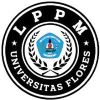PKM Pelatihan Penelitian Tindakan Kelas: Aspek Pokok Etika Penelitian dan Kriteria Penilaian pada Guru SD Negeri Jati Mekar 02 Bekasi
DOI:
https://doi.org/10.37478/abdika.v1i2.939Abstract
Based on the analysis of the situation that happened to teachers at SD Negeri Jati Mekar 02 Bekasi, in general, the teacher was still reluctant to carry out CAR, the implementation of the PTK of the teacher was not as expected and the teacher was constrained when writing the PTK report. So that this situation is the background of the importance of PKM regarding this CAR is carried out, the aim of this PKM is to increase the understanding of SD Negeri Jati Mekar 02 Bekasi teachers about PTK and increase the ability of teachers in the PTK report. The methods used in service activities are: 1) Lectures, lectures are used by the service team to convey the principles of PTK, PTK procedures, implementation of PTK, and procedures for PTK reports. The lecture is supported by the use of a laptop and LCD to display the devotion material for a limited time; 2) Demonstration, Demonstration is used by the service team in the hope that participants can start practicing problem formulation in the learning process that can solve through CAR, the design of the CAR proposal, to the PTK report. To optimize the implementation of this service, assistance is provided by the service team, namely in the preparation of the PTK proposal draft and the PTK report. To measure the ability of participants in mastering the material by 81.9% of all participants. So the dedication activities for SD Negeri Jati Mekar 02 Bekasi teachers measured from the four components above can be said to be quite good. This is thanks to the support of many parties, especially the MGMP SD Negeri Jati Mekar 02 Bekasi.
Downloads
Keywords:
CAR, Scientific Research, CAR Assessment CriteriaReferences
Arikunto, Suharsimi. Dkk. (2015). Penelitian Tindakan Kelas Jakarta: Bumi Aksara
Direktorat Riset dan Pengabdian kepada Masyarakat. 2017. Panduan Pelaksanaan Penelitian dan Pengabdian kepada Masyarakat di Perguruan Tinggi edisi XI. Kementrian Riset, Teknologi dan Pendidikan Tinggi.
Haryono. (2015). Bimbingan Teknik Menulis Penelitian Tindakan Kelas (PTK). Yogyakarta: Amara Books
Kemendikbud. 2010. Peraturan Bersama Mendiknas dan Kepala BKN Nomor 03/V/PB/2010 dan Nomor 14 Tahun 2010 tentang Petunjuk Pelaksanaan Jabatan Fungsional Guru dan Angka Kreditnya. Kemendikbud.
Kementrian PANRB. 2009. Peraturan Menteri Pendayagunaan Aparatur Negara dan Reformasi Birokrasi (PermenPANRB) No. 16 Tahun 2009 tentang Jabatan Fungsional Guru dan Angka Kreditnya. Kementrian Pendayagunaan Aparatur Negara dan Reformasi Birokrasi.
Legiman, (2015) Penelitian Tindakan Kelas (PTK). Widyaiswara LPMP D.I. Yogyakarta. 1 http://lpmpjogja.kemdikbud.go.id/wp-content/uploads/2015/02/Penelitian-Tindakan- Kelas-PTK-legiman.pdf
Moses, Melmambessy. (2012): Analisis Pengaruh Pendidikan, Pelatihan, dan Pengalaman Kerja terhadap Produktivitas Kerja Pegawai Dinas Pertambangan dan Energi Provinsi Papua. Media Riset Bisnis & Manajemen 12.1 18-36
https://trijurnal.lemlit.trisakti.ac.id/index.php/mrbm/article/view/1103
Salim, Karo-Karo R, Irsan. (2015). Penelitian Tindakan Kelas (PTK). Medan: Pedana Publising, 26.
Undang-Undang Republik Indonesia Nomor 20 Tahun 2003 Tentang Sistem Pendidikan Nasional
http://pendis.kemenag.go.id/file/dokumen/uuno20th2003ttgsisdiknas.pdf
Undang – undang RI No. 14 Tahun 2005, tentang Guru dan Dosen
Wina Sanjaya. 2016. Penelitian Tindakan Kelas. Jakarta : Kencana.
Downloads
Published
How to Cite
Issue
Section
License
Copyright (c) 2021 Risky Dwiprabowo, Evi Faujiah

This work is licensed under a Creative Commons Attribution-ShareAlike 4.0 International License.










